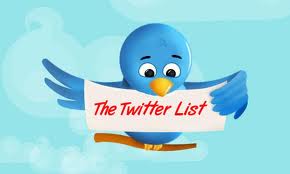If you’re a writer who uses Twitter, you’re probably familiar with The Creative Penn. She has one of the most useful feeds out there, offering links to everything writing.
I got to know Joanna Penn when she interviewed me for a podcast on her blog. That’s when I realized this tech-savvy English writer had a few tips that would benefit my readers.

Joanna Penn, from The Creative Penn
Penn, who lives in Brisbane, Australia, has self-published three non-fiction books. At her blog, The Creative Penn, she shares her knowledge on writing, publishing options, Internet sales and book promotion.
Thanks for joining us, Joanna!
Like many of us, you have a day job and write on the side. What’s your day job? How do you find time for writing?
I am actually a business IT consultant with a mining company in Australia. I work as a contractor so currently I do four days per week or sometimes three. I found that moving to four days per week enabled me to actually get the time to write my first book and have not gone back to full time since then. That extra day just gives me a big slot of time to write and meant I could manage three books in two years. I seriously recommend it to people. Just ask – you never know what your boss will say.
Finding time is hard for us all! I spend most evenings and weekends working on http://www.TheCreativePenn.com with blog posts and emails, as well as social networking and arranging interviews and speaking opportunities.
Can you tell us about your program Author 2.0? How’d you come up with the idea?
The Author 2.0 Program basically teaches writers/authors how to write, publish, sell and promote their books using Web 2.0 online tools. I decided to write the course when I realised that I was loving the online space for all this platform building, digital publishing, etc. but many other writers did not have the technical skills or enjoy it. Many people didn’t even know where to start, for example, in setting up a blog, or publishing an ebook, or even what print-on-demand is. I am fortunate to be working in the IT field so I am very comfortable playing with this technology, and I wanted to help others.
 I also discovered I could publish my own book on Amazon.com for under $100 and wanted to share that information with others because it changed my writing life. Then I wanted to share about blogging, podcasting, ebooks, cross-media writing, making money as an author… and so much more. So I wrote the course with 12 modules, each covering a key area of writing, publishing, sales and promotion online. Each module has an ebook with loads of written information, then there are videos per module where I show you how to do things e.g. how to create and publish an ebook, or how to use Twitter. There is also an audio interview with an expert in each module, for example, in the Author Entrepreneur module, I interview John Kremer, author of 1001 Ways to Market Your Books, as well as experts in all the other fields. The people who take the course find it packed with information and we also have monthly teleseminars for questions.
I also discovered I could publish my own book on Amazon.com for under $100 and wanted to share that information with others because it changed my writing life. Then I wanted to share about blogging, podcasting, ebooks, cross-media writing, making money as an author… and so much more. So I wrote the course with 12 modules, each covering a key area of writing, publishing, sales and promotion online. Each module has an ebook with loads of written information, then there are videos per module where I show you how to do things e.g. how to create and publish an ebook, or how to use Twitter. There is also an audio interview with an expert in each module, for example, in the Author Entrepreneur module, I interview John Kremer, author of 1001 Ways to Market Your Books, as well as experts in all the other fields. The people who take the course find it packed with information and we also have monthly teleseminars for questions.
Here’s a free Blueprint for people who are interested — it contains lots more information.
Can you share a few tips for authors marketing their books?
The first thing is that you need to think of marketing as telling people who are interested in your niche that you exist and offering helpful and valuable information. If people are interested, and they like and trust you, they will buy your book/product. There are so many ways you can get yourself out there these days, and people have to find what fits them and their market. Do you love video? Audio? Twitter? Live speaking? You have to enjoy it or you just won’t do it. I was surprised to find that I actually love marketing now that I know what I am doing!
The most successful things for me personally in terms of marketing for platform building and book sales have been:
- Having a great blog. The Creative Penn, for example, is regularly updated with interesting, relevant content, and easily clickable “Buy this Book Now” links, and free workbooks/blueprints. This means you get traffic to your site and people see your books. They are far more likely to buy your books if they know your other writing is great. The search engines also come regularly and you can build your expertise in the field. I am so passionate about blogging now – I absolutely love my blog, and my readers.
- Being active on Twitter (or another specific social network for your niche). This has really exploded my market and my traffic and the time I spend pays dividends.
- Speaking either live or on teleconferences. I love to talk about my niche of using web 2.0 tools as an author, and I also speak on digital branding. I do many teleseminars for other blogs as well as my own, and I also speak at least once a month at various events near where I live. I have done writers groups, full day seminars, evening networking events and guest spots. I often speak for free but I make product and book sales from these appearances. As I mentioned before, people will buy if they like you and are convinced by your knowledge. How do you get this opportunities? Just start asking people and offering, or put something on your site advertising yourself as a speaker for starters.
For more examples, I have a free marketing plan available for download on my site.
You’re ever-so-popular with the writing community on Twitter. How’d you manage that? Got any social-networking advice?
I used to think Twitter was a waste of time and then I read Grown Up Digital by Don Tapscott. I recommend that book to anyone who doesn’t “get” social networking or the social web.
So I joined Twitter around February 2009 and like everyone else, didn’t have a clue how to use it. I started tweeting useful links to blog posts in my area of interest – writing, publishing, internet sales and book promotion. I found that other people found me and followed me, and also started to retweet my links (pass them on to other users). In this way, my followers started to grow.
Continue reading →
Filed under: Interviews, Promotion, Twitter | Tagged: Australia, Blogging, Joanna Penn, NaNoWriMo, podcast | 12 Comments »






